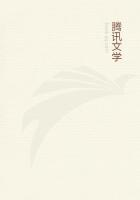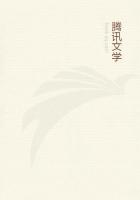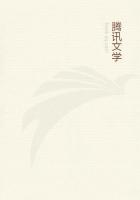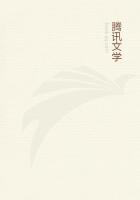Soc.I mean, O my Protarchus, to ask whether you would tell me that ship-building is for the sake of ships, or ships for the sake of ship-building? and in all similar cases I should ask the same question.
Pro.Why do you not answer yourself, Socrates?
Soc.I have no objection, but you must take your part.
Pro.Certainly.
Soc.My answer is, that all things instrumental, remedial, material, are given to us with a view to generation, and that each generation is relative to, or for the sake of, some being or essence, and that the whole of generation is relative to the whole of essence.
Pro.Assuredly.
Soc.Then pleasure, being a generation, must surely be for the sake of some essence?
Pro.True.
Soc.And that for the sake of which something else is done must be placed in the class of good, and that which is done for the sake of something else, in some other class, my good friend.
Pro.Most certainly.
Soc.Then pleasure, being a generation, will be rightly placed in some other class than that of good?
Pro.Quite right.
Soc.Then, as I said at first, we ought to be very grateful to him who first pointed out that pleasure was a generation only, and had no true being at all; for he is clearly one who laughs at the notion of pleasure being a good.
Pro.Assuredly.
Soc.And he would surely laugh also at those who make generation their highest end.
Pro.Of whom are you speaking, and what do they mean?
Soc.I am speaking of those who when they are cured of hunger or thirst or any other defect by some process of generation are delighted at the process as if it were pleasure; and they say that they would not wish to live without these and other feelings of a like kind which might be mentioned.
Pro.That is certainly what they appear to think.
Soc.And is not destruction universally admitted to be the opposite of generation?
Pro.Certainly.
Soc.Then he who chooses thus, would choose generation and destruction rather than that third sort of life, in which, as we were saying, was neither pleasure nor pain, but only the purest possible thought.
Pro.He who would make us believe pleasure to be a good is involved in great absurdities, Socrates.
Soc.Great, indeed; and there is yet another of them.
Pro.What is it?
Soc.Is there not an absurdity in arguing that there is nothing good or noble in the body, or in anything else, but that good is in the soul only, and that the only good of the soul is pleasure; and that courage or temperance or understanding, or any other good of the soul, is not really a good?-and is there not yet a further absurdity in our being compelled to say that he who has a feeling of pain and not of pleasure is bad at the time when he is suffering pain, even though he be the best of men; and again, that he who has a feeling of pleasure, in so far as he is pleased at the time when he is pleased, in that degree excels in virtue?
Pro.Nothing, Socrates, can be more irrational than all this.
Soc.And now, having subjected pleasure to every sort of test, let us not appear to be too sparing of mind and knowledge: let us ring their metal bravely, and see if there be unsoundness in any part, until we have found out what in them is of the purest nature; and then the truest elements both of pleasure and knowledge may be brought up for judgment.
Pro.Right.
Soc.Knowledge has two parts-the one productive, and the other educational?
Pro.True.
Soc.And in the productive or handicraft arts, is not one part more akin to knowledge, and the other less; and may not the one part be regarded as the pure, and the other as the impure?
Pro.Certainly.
Soc.Let us separate the superior or dominant elements in each of them.
Pro.What are they, and how do you separate them?
Soc.I mean to say, that if arithmetic, mensuration, and weighing be taken away from any art, that which remains will not be much.
Pro.Not much, certainly.
Soc.The rest will be only conjecture, and the better use of the senses which is given by experience and practice, in addition to a certain power of guessing, which is commonly called art, and is perfected by attention and pains.
Pro.Nothing more, assuredly.
Soc.Music, for instance, is full of this empiricism; for sounds are harmonized, not by measure, but by skilful conjecture; the music of the flute is always trying to guess the pitch of each vibrating note, and is therefore mixed up with much that is doubtful and has little which is certain.
Pro.Most true.
Soc.And the same will be found to hold good of medicine and husbandry and piloting and generalship.
Pro.Very true.
Soc.The art of the builder, on the other hand, which uses a number of measures and instruments, attains by their help to a greater degree of accuracy than the other arts.
Pro.How is that?
Soc.In ship-building and house-building, and in other branches of the art of carpentering, the builder has his rule, lathe, compass, line, and a most ingenious machine for straightening wood.
Pro.Very true, Socrates.
Soc.Then now let us divide the arts of which we were speaking into two kinds-the arts which, like music, are less exact in their results, and those which, like carpentering, are more exact.
Pro.Let us make that division.
Soc.Of the latter class, the most exact of all are those which we just now spoke of as primary.
Pro.I see that you mean arithmetic, and the kindred arts of weighing and measuring.
Soc.Certainly, Protarchus; but are not these also distinguishable into two kinds?
Pro.What are the two kinds?
Soc.In the first place, arithmetic is of two kinds, one of which is popular, and the other philosophical.
Pro.How would you distinguish them?
Soc.There is a wide difference between them, Protarchus; some arithmeticians reckon unequal units; as for example, two armies, two oxen, two very large things or two very small things.The party who are opposed to them insist that every unit in ten thousand must be the same as every other unit.
Pro.Undoubtedly there is, as you say, a great difference among the votaries of the science; and there may be reasonably supposed to be two sorts of arithmetic.

